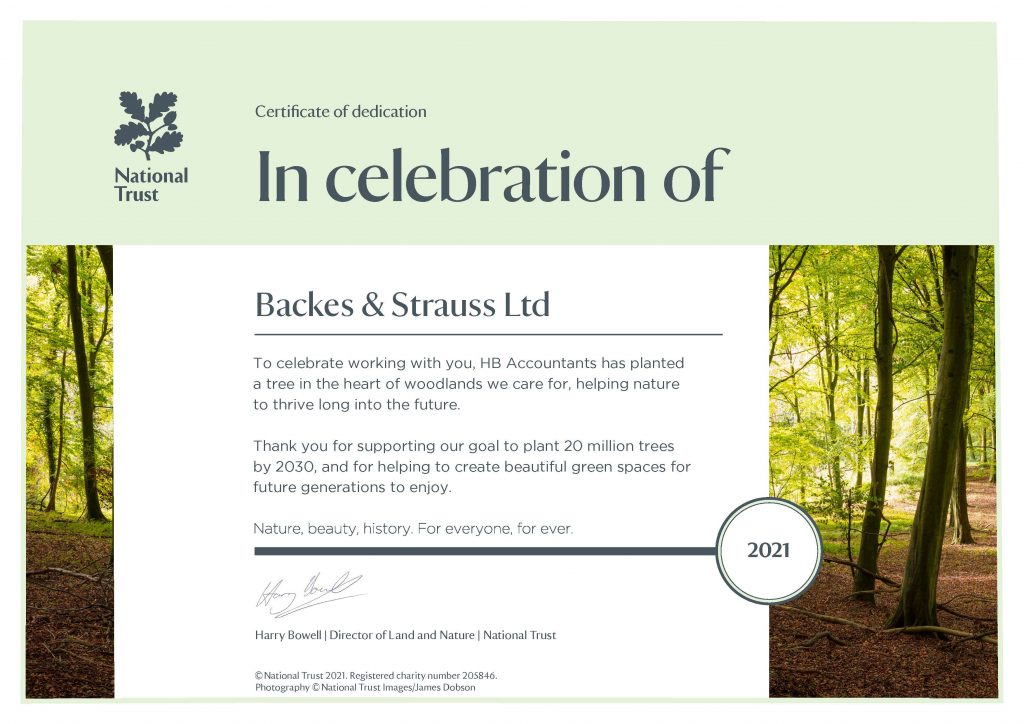In Britain, almost a fifth of greenhouse gas emissions come from businesses according to government statistics. Contrast this with research from Unilever that suggests 33% of consumers want to buy from brands they perceive as “green’ and employees want to work for a ‘green’ company. According to other research, 75% of employees within SMEs say that sustainability is important to them.
As customers want to buy from and work for green businesses, there are clear economic benefits of being perceived in this way, however, it is also our moral duty to reduce waste and increase sustainability. As we stated in our earlier blog, HB is keen to take a more sustainable approach to how we work and ultimately be carbon negative. There’s a way to go but we know we can achieve this through eliminating waste, purchasing more carefully, and ‘carbon offsetting’.
What is carbon offsetting?
Carbon offsetting is the process of neutralising the amount of carbon emissions we automatically generate through our regular daily operations. This covers the fuel used in vehicles, the energy we use to heat or cool our building, the stationery, paper and ink, the coffee we drink and so the list goes on. Whilst we may be able to reduce some of this carbon by working differently and purchasing from local businesses, any remaining carbon emissions that we can’t remove may be offset by taking positive actions that benefit the environment.
We can offset the carbon we produce either directly or indirectly via charities established to do just this. First we need to quantify the amount of carbon we produce – there are many websites to help such as carbonfootprint.com, and some energy companies are particularly good at this. You often need a year’s energy bills and details of products that you purchase on a regular basis. Once you know your volume of carbon emissions, you can either ‘buy’ carbon offset credits, which are essentially a form of investment into programmes or organisations which do things like restore and protect forestry, generate sources of renewable energy or support waste recycling schemes, or do it yourself.
Planting a tree for every new client
HB has started on the journey to quantify our carbon emissions and look for ways to both offset our carbon and work more sustainably. One of our recent initiatives, plant a tree for every new client that we introduce.

Trees are almost entirely made up of carbon atoms. They need very few nutrients relative to their size so they don’t deplete the topsoil, get most of their water from deep underground, and their mass from the air they breathe. Each tree removes around 7 tonnes of carbon dioxide over its lifetime – planting a tree is a viable way of offsetting the carbon we will produce as we service our client.
We work with The National Trust presently planting a tree for each new client but we would love to work with a local nursery too and plant trees locally to Hoddesdon, Hertfordshire – if you know any, please feel free to ask them to contact us! Or if you would like to work with ‘green’ accountants HB, call us on 01992 444466.
We’d also be happy to share our many ideas of how to work sustainably: you’ll find some of them in our blogs about how to become carbon neutral and the tax and environmental benefits from driving an electric car
If you want to discuss this further – or would like to work with ‘green’ accountants HB, call us on 01992 444466. We’re experts ready to support you and your business, no matter your company size or sector.
Visit our COVID19 Business Hub for more information
View our latest blogs below
- HMRC Advisory Fuel Rates (AFRs) from 1st June 2025
- How an audit can help your business (and actions you can take to make it go smoothly too!)
- Why a budget helps you to focus on business growth
- How a SME Owner Can Create More Time
- A New Academic Year for our Student in Zambia
The information contained above is for general guidance purposes only. Whilst every effort has been made to ensure the contents are accurate, please note that each individual has different circumstances and it is essential that you seek appropriate professional advice before you act on any of the information contained herein. HB Accountants can accept no liability for any errors or omission or for any person acting on or refraining from acting on the information provided in the above

